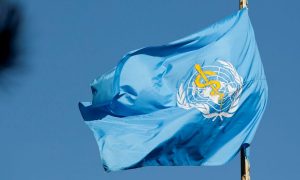 The World Health Organization (WHO) has been criticised for its refusal to allow representation from tobacco-related companies at its biannual tobacco control meeting in New Delhi.
The World Health Organization (WHO) has been criticised for its refusal to allow representation from tobacco-related companies at its biannual tobacco control meeting in New Delhi.
Condemning the tobacco industry in a style familiar from WHO leaders, the head of the Framework Convention on Tobacco Control (FCTC) secretariat Vera da Costa e Silva claimed that the industry was trying to insinuate itself into delegations and proceedings.
“If anyone doubts the importance of what we do here, always remember the industry’s malevolent presence and the strong need for transparency,” she said.
Media representatives have reportedly also been excluded from the meeting, as they were in Moscow two years ago. ECigIntelligence was refused accreditation but is continuing to cover the event with a reporter in Delhi.
Electronic nicotine delivery systems (ENDS) such as e-cigarettes are on the agenda for the meeting, although the WHO’s criticism of all vaping alternatives has been dismissed by many specialists in the field.
The WHO has released reports over the last two years dismissing e-cigarettes as an alternative to combustibles.
The agenda for the week also includes discussion on the illicit-tobacco-trade protocol, alternatives that can be provided to tobacco farmers and tobacco workers, the liability of the tobacco industry, tobacco advertising, and prevention of globally emerging products, a category which includes waterpipe tobacco products as well as ENDS and electronic non-nicotine delivery systems (ENNDS).
Global attendance
The seventh session of the Conference of Parties (COP7) brings together almost 180 countries participating as delegates as well as other organisations.
Over the course of the week, delegates and leaders from different countries will meet and discuss the changes, economical and political, that they would like to see in the anti-tobacco movement. The first day of the conference saw the president of Sri Lanka, Maithripala Sirisena, Indian health minister J.P. Nadda and members of WHO make opening statements.
Sirisena addressed a main agenda item for COP7 – the illegal trade of tobacco products – along with the problem of smokeless tobacco facing many countries in South Asia. India in particular has been struggling for years to ban smokeless tobacco in the form of chewing tobacco that causes close to 100,000 new oral cancer cases annually.
The WHO is keen to increase the number of parties signing up to the illicit-trade protocol and hopes to bring the protocol into force in 2018.
Considerate host
Hosting for the first time, India announced the event with advertisements in national newspapers, and prime minister Narendra Modi reiterated the country’s commitment to implementing the WHO FCTC.
The WHO has been working hard to convince nations to show their support by increasing taxes on tobacco products, eliminating illegal trade in tobacco products, and banning ENDS.
India is the third largest producer of tobacco in the world, producing about 800m kilograms every year. The multi-billion-dollar industry provides employment for more than 45m people.
But Indian farmers who had been denied admittance to COP7 gathered for protests outside the venue. They were eventually were detained by police. “If we take them in the delegation, the government of India may feel embarrassed,” an unnamed health ministry official told the Reuters news agency.
In a statement, the Tobacco Institute of India said: “The Indian Government should be cautious and not get influenced by the propaganda of the international NGOs seeking unreasonable regulations and should instead promote a balanced approach towards tobacco control regulations at the Conference.”
What This Means: Once again, the fight against tobacco’s health harms seems to be dominated by the WHO’s fixation on controlling the dialogue, along with its severe stand on all vaping alternatives to smoking.
– Swati Gupta ECigIntelligence contributing writer






